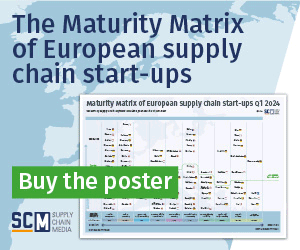Has digitalization made cultural intelligence obsolete?

Nowadays, we all have a wide range of what I like to call ‘digital assistants’ at our fingertips, such as apps, quick Google look-ups or chat windows that can connect us to the other side of the world. This means you can have rapid access to any far-flung suppliers, and thanks to video calls you can even check out the on-site reality without having to set foot on a plane. So the world is becoming smaller – and easier to reach. But does this mean that you no longer need to spend hours getting to know and understand your business partners? If everything can be virtually guided and digitally translated – and an algorithm could even teach your chatbot to negotiate prices with your vendor in future – what’s the use, right?
Wrong! ‘Cultural intelligence’, i.e. understanding cultural business etiquette, has never been more important – and business has never relied so heavily on people skills as it does today. Digital assistants are available to everyone… and that includes your competitors. This means that if you’ve found your key supplier via digital platforms, the chances are that your competitor could find them too – and even offer better prices. What would that mean for your business? Or maybe rather than offering better prices, they would offer a much more precious commodity: their time and involvement. And let’s be honest, who are our favourite business partners? The ones who only communicate via email (including Caps Lock and bold on a bad day!), or the ones who ask us how we are, look us in the eye and show genuine interest? As digitalization escalates, time and involvement are becoming increasingly scarce. This is good for me and my consultancy, as people ring me asking for help with fixing their broken business relationships, but to be honest it doesn’t have to be this way.
How to nurture valuable business relationships?
I am not saying we shouldn’t take advantage of digitalization and all the good things it brings. I am merely saying that a balanced or even strategic approach to Supplier Relationship Management is needed. As a consultant, speaker and workshop facilitator, I am lucky enough to encounter a wide range of different industries and companies, all with the same challenge: ‘How do we strengthen the cooperation with our key strategic suppliers, on a limited budget?’. And to me, that’s the challenge – spot on – right there. When everyone is having to do more with less and agendas are being filled with virtual conference calls, how can we create and nurture our most valuable business relationships?
I once saw a bumper sticker saying ‘Get up. Dress up. Show up. And never give up.’ This advice could equally be applied to the current dilemma. Get up from your desk – or look up from your phone when spending time with your business partner. Dress up for the occasion – invite them out if they are in your time zone. ‘Show up’ means spend time with them; get to know them, and learn to understand both their business and what motivates them. Dinner conversations can still reveal hidden treasures!
No time for new samples
To illustrate the last part about not giving up, let me tell you a story from my countless hours of visiting suppliers. A client had changed the colours of the entire collection at the last minute before an important fair. This meant that there was virtually no time to make new samples in the new colours for the major event. I mailed and called every single contact person that we had at the supplier, but they all said the same: ‘But there is no time!’ and ‘Impossible!’. So I booked a flight for the very same evening. The supplier said ‘Don’t waste your time coming here, there is simply no time – it won’t make a difference!’. I said that I completely understood and that I just wanted to visit them to talk and see how they were. Upon arrival at the factory, they repeated the same thing to me.
And then as the hours passed by, we started talking about where to have dinner. The general manager invited his wife and members of his family as well – and as we said goodbye outside the restaurant, a package was handed to me: the new, amended samples. I carried them back to the client in my hand luggage and arrived just in time for the fair. This just goes to show that personal relationships still make all the difference.
Heidi Larsen, the Supply Chain Princess of Plus 7






